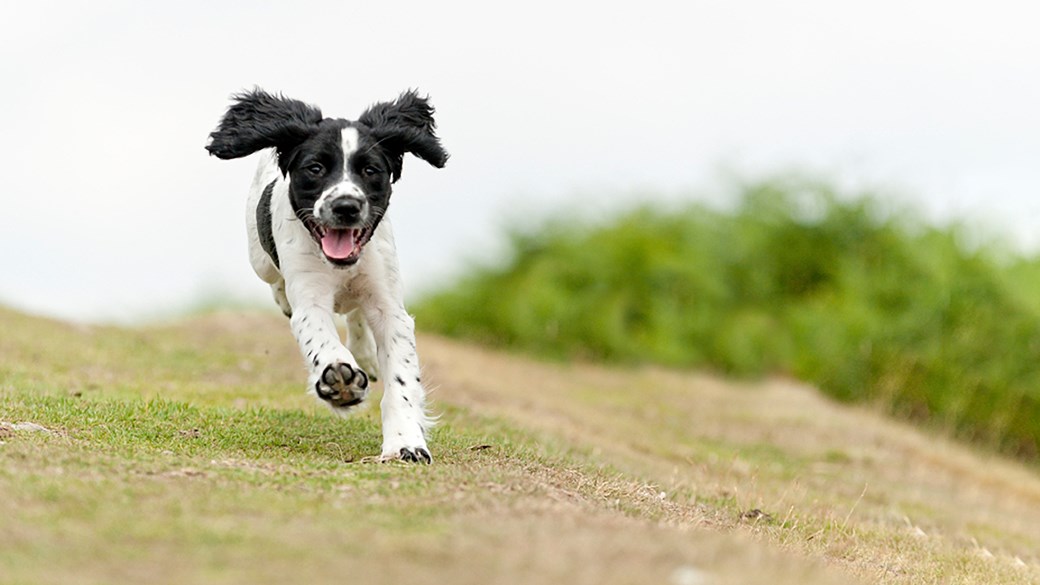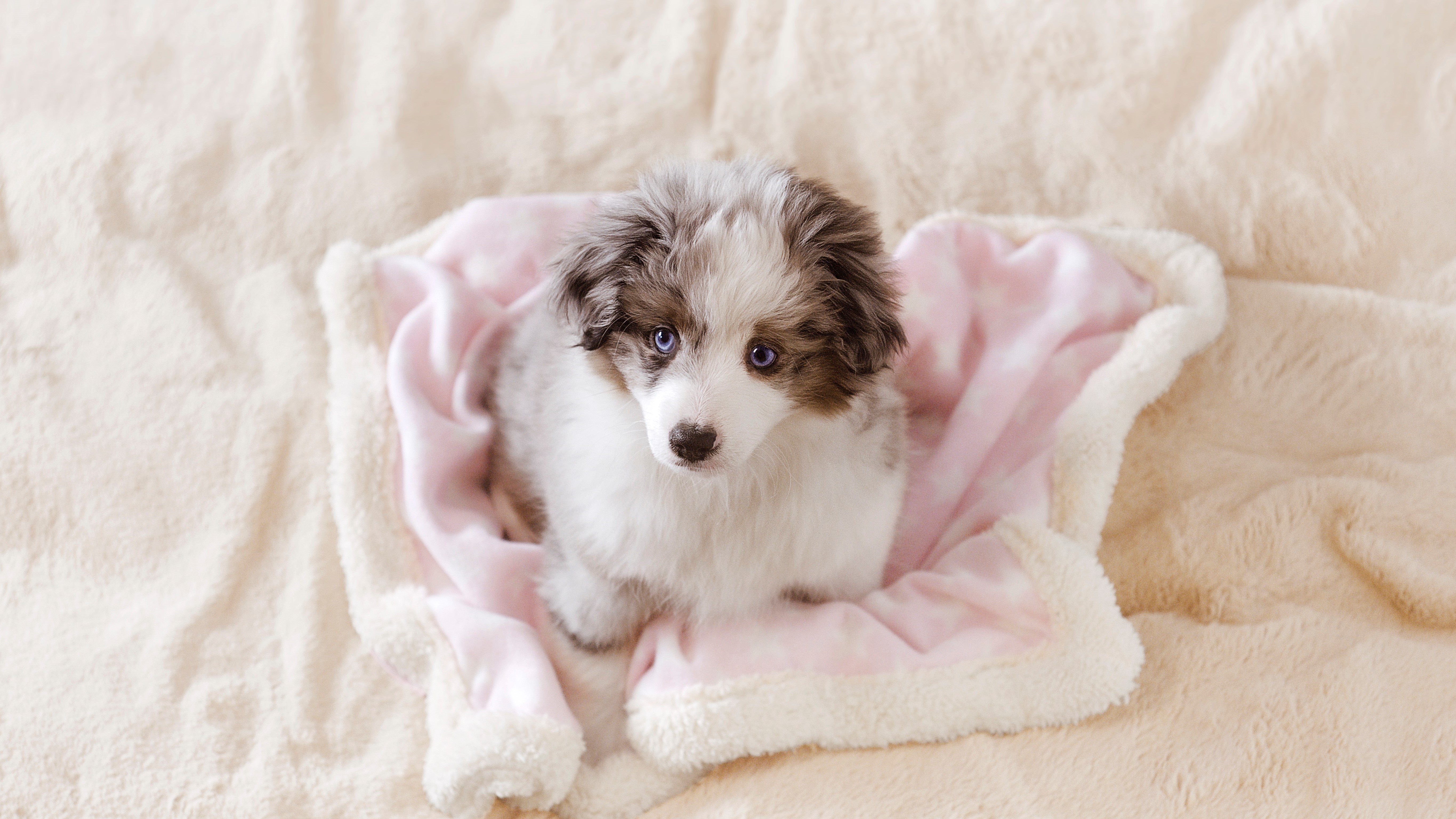
Training Recall
Letting your dog off the lead when it’s safe to do so can be great fun, but not if you struggle to get them back!
Dogs love a game of ‘duck and weave’, and getting a lead clipped on an unwilling and playful dog can be a nightmare. Training recall lets you give your dog some freedom, while still making sure you can get them back when or if you need to.
More about training recall
Recall is a really useful cue, as well as giving you peace of mind and keeping you and your dog safe. We most often think of using recall on walks, but it can also be used around the home, which helps with reinforcement. It’s a tricky command to master – your dog has to want to come back to you more than they want any other distraction on offer, which can be a tall order! Just like with all training, short, frequent sessions are better.
Puppies especially have very short attention spans, and trying to introduce new training for more than 5-10 minutes at a time will just result in frustration for both of you! With puppies it is also important to remember that although you can start with the basics at home, they won’t be able to put their skills to the test in the wider world until a few weeks after they have had their vaccinations. Starting recall training at home and then building up is actually a really useful way to develop recall training anyway, as the outside world is full of distractions and interesting things! Learning in a calm and controlled environment first will help your dog build up their skills, before they are tested in a more fluid environment.
The most important point regarding recall training is that it’s important to know your dog. In order to be more rewarding than all the other distractions it’s important to know what motivates your puppy – is it a favourite treat? A massive fuss? A specific toy? Your dog has to know that whatever else is going on, what you are offering is going to be better.
- Pick your cue. This has to be a word or phrase that everyone in your family will use. Ideally, make this something you won't use otherwise in everyday life 'come' can be quite confusing!
- Start at home. Call your puppy to you, using their name and then your cue. Make sure you sound really happy and excited!
- When your puppy comes to you reward him with something really high value. Choose something you know they will love. If you can keep something special that you use just for recall, you may find this increases the value.
- Repeat this several times each day so that your puppy begins to associate coming when called with a great reward. You can use it to call for dinner, or call to play, or for any reason but make sure you always give a huge reward for coming when you have used the recall cue.
- Start doing this when your puppy is outside and on their lead if you puppy is too young to go on a walk, you can practice in your garden! Use a short lead at first, and give praise and a reward when your dog comes in response to your cue.
- You can increase the challenge by increasing the length of the lead (training leads can be really helpful), and by walking in new situations with other distractions once your puppy is fully vaccinated.
- It's time to move towards removing the lead! Give lots of positive reinforcement when your dog comes back to your cue, be that high-value treats or a game of tug! It’s important not to just use recall to end a walk, as your dog may soon come to associate the recall cue with the end of play time!
- Ask friends or family to be a safe distraction for your dog, and practice your recall cue with increased distractions around.
- Once your dog is returning predictably to your cue, you've got it!
- Regression. Recall training can be frustrating, especially as without continued work recall can regress. Unless you stay more exciting than the rest of the world, you may find your pup loses interest in coming back! This doesn't mean you need to give a treat every time you use your recall cue forever, once your dog is responding every time, you can drop the frequency of times you reward the behaviour. Think of dogs like gambling addicts; if you vary the frequency of getting the treat, they will always come back to see if they get one this time!
- Failure to respond. If your dog ignores your recall cue it can be tempting to shout it at them, or tell them off once you have caught them. It's important to recognise that this doesn't make your dog more likely to come back in the future actually, anticipating shouting makes your dog much less likely to return! If they don't respond to your cue, just go and get them. Using the cue repeatedly and to no effect will poison it. Another commonly used method is to show your puppy the treat you have, to entice them to come back over. Sadly puppies are too smart for this, and will quickly learn to only come when a reward is displayed first.Think about how you can work on improving recall in that situation in the future, and take training back a step or two, with less distractions, higher rewards or having your puppy back on a long lead.
- Staying high value. While food is enough reward for some dogs, others need more! If fuss or interaction is your dog's favourite currency, you can try crouching down or running in the opposite direction from your dog. Making them coming back into a game can be a great aid for recall for playful or working-breed dogs.
- Slow progress. This is a slow lesson to learn, and shouldn't be rushed. Practice in secure environments first, such as gardens and dog fields. If your dog is too excited to concentrate when you are out but does perfectly when you are at home, it might be that you are trying to train them at the wrong time. Try doing the training near the end of a walk when they might be a little more tired and less interested in their surroundings.
Join our VIP puppy club
Join our VIP club to receive advice, rewards, savings and a host of offers including £30 off Complete Care Junior or Complete Care. Plus, every swipe of your VIP card helps animals in need near you.

